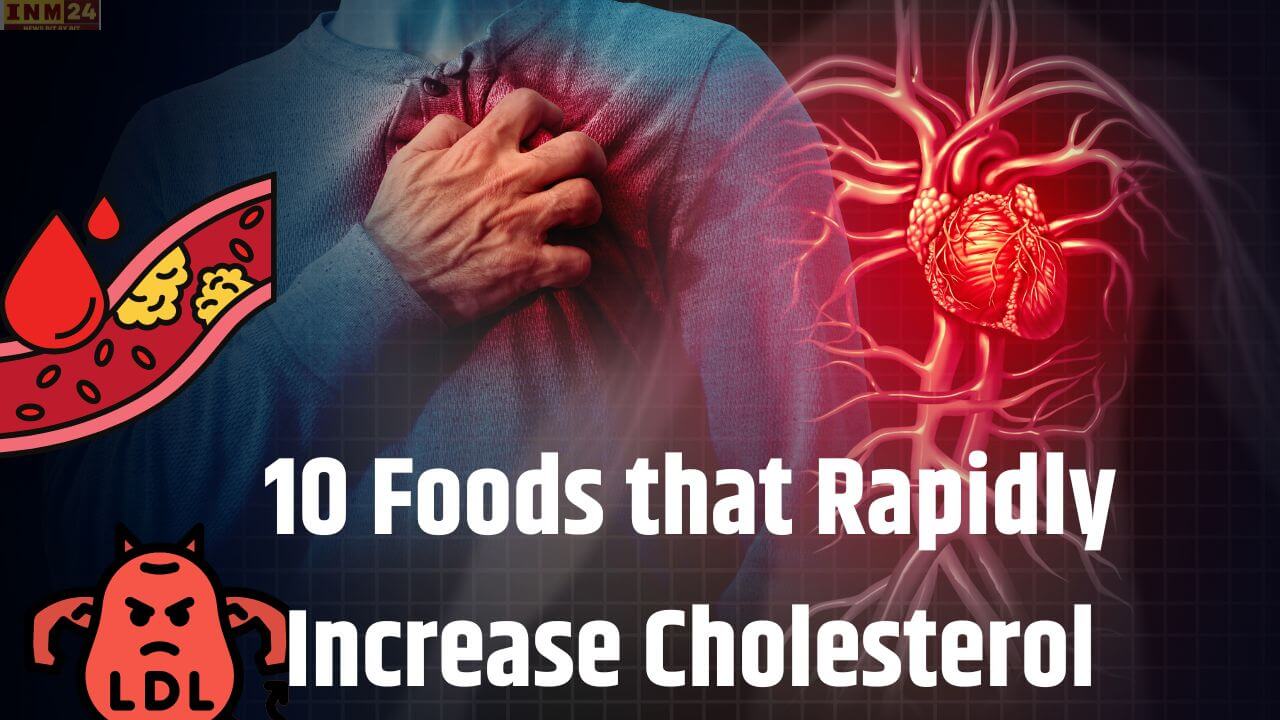In today’s fast-paced world, high cholesterol has become a common health concern, often leading to severe conditions such as heart attacks or strokes. While medication is often necessary for those with cholesterol issues, incorporating certain vegetables into your diet can also make a significant difference. Here, we discuss ten unhealthy foods that can spike cholesterol levels and introduce you to the number one vegetable that can help combat this issue.
Unhealthy Foods to Avoid
- Fatty Meats and Dairy Products: Processed meats like bacon, sausages, and hot dogs, as well as fatty cuts of beef, pork, and lamb, contain high levels of saturated fats. These fats can elevate LDL cholesterol levels, increasing the risk of heart disease.
- Fried and Baked Goods: Foods deep-fried in unhealthy oils, such as French fries, fried chicken, and fried fish, are often laden with trans fats that raise LDL cholesterol. Similarly, commercially produced cakes, cookies, pastries, and pies often contain trans fats, contributing to elevated cholesterol levels.
- Processed and Packaged Foods: Many processed and packaged foods, including snack foods, crackers, chips, and microwave popcorn, contain unhealthy fats and additives that can raise LDL cholesterol levels.
- Palm Oil and Coconut Oil: While not all fats are created equal, palm oil and coconut oil are high in saturated fats, which can increase LDL cholesterol levels when consumed in excess.
- Egg Yolks: While eggs are nutritious, egg yolks contain dietary cholesterol. Consuming excessive amounts of egg yolks may contribute to elevated cholesterol levels, although the impact can vary among individuals.
- Shellfish: Certain types of shellfish, such as shrimp, lobster, and crab, contain higher levels of cholesterol compared to other protein sources. While they can be part of a healthy diet, moderation is key for individuals with cholesterol concerns.
The Power of Brussels Sprouts
When it comes to reducing cholesterol, Brussels sprouts are hailed as the number one vegetable. These miniature cabbage-like vegetables are an excellent source of soluble fiber, which helps lower LDL cholesterol levels. Consuming just half a cup of Brussels sprouts provides around 4 grams of total fiber, with 2 grams being soluble fiber.
According to the National Lipid Association, adding just 5 to 10 grams of soluble fiber from foods like vegetables to your daily diet could potentially lower LDL cholesterol by 5 to 11 points. Brussels sprouts, rich in antioxidants and fiber, are an excellent choice to incorporate into your meals for better heart health.
Other Dietary Tips for Managing Cholesterol
In addition to incorporating Brussels sprouts into your diet, here are some general tips for managing cholesterol levels:
- Focus on Fiber: Aim to consume 2.5 to 3.5 cups of vegetables daily to increase your fiber intake.
- Limit Saturated and Trans Fats: Reduce your intake of foods high in saturated and trans fats, such as fatty meats, processed foods, and baked goods.
- Stay Active: Regular physical activity can help improve cholesterol levels and overall heart health.
- Consult a Healthcare Professional: Always consult with your doctor or a registered dietitian for personalized advice on managing your cholesterol levels.
High cholesterol levels pose a significant risk to heart health, but making dietary changes, such as incorporating Brussels sprouts and avoiding unhealthy foods, can help manage cholesterol levels and reduce the risk of heart disease. By being mindful of your food choices and adopting a balanced diet, you can take proactive steps towards better heart health and overall well-being.
